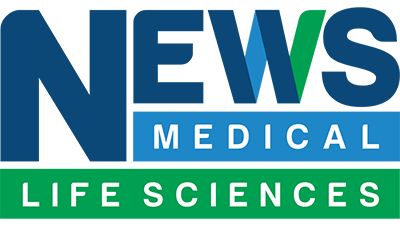
|
|
|
| |

|
|
| |
The latest respiratory diseases news from News Medical |
|
|
|
 | | | 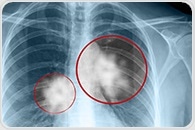 New nuclear medicine tracer could improve diagnosis, treatment of non-small cell lung cancer New nuclear medicine tracer could improve diagnosis, treatment of non-small cell lung cancer Researchers have developed a new nuclear medicine tracer that could improve diagnosis and treatment of non-small cell lung cancer. Research published in the November issue of The Journal of Nuclear Medicine found that the new tracer, 99mTc-HYNIC-cMBP, produced clearer images in less time than currently used tracers and was more rapidly eliminated from the body, reducing radiation exposure. | |
|
|
| |  | | |  Patients hospitalized for either asthma or chronic obstructive pulmonary disease have a higher risk of being readmitted for a hospital stay within 30 days of release if they also suffer from chronic rhinitis, according to a trio of researchers at the University of Cincinnati. Patients hospitalized for either asthma or chronic obstructive pulmonary disease have a higher risk of being readmitted for a hospital stay within 30 days of release if they also suffer from chronic rhinitis, according to a trio of researchers at the University of Cincinnati. | | | | |  The largest-ever genetic study of people with moderate-to-severe asthma has revealed new insights into the underlying causes of the disease which could help improve its diagnosis and treatment. The largest-ever genetic study of people with moderate-to-severe asthma has revealed new insights into the underlying causes of the disease which could help improve its diagnosis and treatment. | | | | | 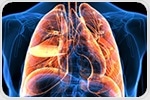 A 'rule book' to guide precision combination immunotherapies and to speed up the development of new lung cancer treatments will be created as part of a collaboration between Cancer Research UK, the Francis Crick Institute and Bristol-Myers Squibb, announced today (Friday). A 'rule book' to guide precision combination immunotherapies and to speed up the development of new lung cancer treatments will be created as part of a collaboration between Cancer Research UK, the Francis Crick Institute and Bristol-Myers Squibb, announced today (Friday). | | | | | 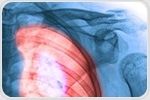 Scientists at the UCLA Jonsson Comprehensive Cancer Center have identified sodium glucose transporter 2, or SGLT2, as a mechanism that lung cancer cells can utilize to obtain glucose, which is key to their survival and promotes tumor growth. Scientists at the UCLA Jonsson Comprehensive Cancer Center have identified sodium glucose transporter 2, or SGLT2, as a mechanism that lung cancer cells can utilize to obtain glucose, which is key to their survival and promotes tumor growth. | | | | | 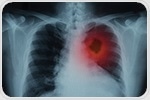 Epigenetic therapies -- targeting enzymes that alter what genes are turned on or off in a cell -- are of growing interest in the cancer field as a way of making a cancer less aggressive or less malignant. Epigenetic therapies -- targeting enzymes that alter what genes are turned on or off in a cell -- are of growing interest in the cancer field as a way of making a cancer less aggressive or less malignant. | | | | | 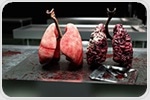 The World Health Organization estimates 387,913 Europeans will die of lung cancer in 2018. The preliminary findings from a new study by the Economist Intelligence Unit comparing 13 countries show that governments across Europe are responding in very different ways to the disease. The World Health Organization estimates 387,913 Europeans will die of lung cancer in 2018. The preliminary findings from a new study by the Economist Intelligence Unit comparing 13 countries show that governments across Europe are responding in very different ways to the disease. | |
|
|
|
|
|
|
|